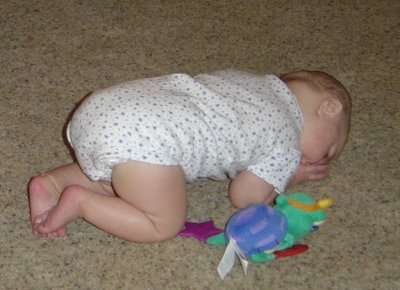I have a very strong, close history of female cancers in my family. My mom is a cervical and breast cancer survivor. My maternal grandmother died of ovarian cancer. My paternal grandmother died of uterine cancer. My maternal great-aunt died of breast cancer. I believe another of my mom's relatives was recently diagnosed with breast cancer, as well.
My annual ob/gyn appointment was this past Monday, and he wants to be a little more proactive with my care as it relates to the cancer history. He still thinks a mammogram wouldn't be beneficial for me for a few more years unless something alerts us to needing one. (Younger breast tissue doesn't show abnormalities as well as older breast tissue that is more fatty.) He does want me to start coming in twice a year, though, once for my pelvic and breast exams, and another time just for a breast exam. And yes, he knows I do this monthly, but again, he wants to be more proactive with this.
He also wants me to meet with a geneticist to see if I'm a candidate for blood work that would determine if I'm a carrier of any breast cancer genes. Carrying such a gene would not guarantee I would get cancer, but it would increase my chances. With such a strong family history of these cancers, I have always assumed that I carry some sort of gene that would increase my risk more than the typical woman, so I think I'd be emotionally prepared for such information. I've got an appointment set up for September 10 to go over a family history with the geneticist, but I'm in the process of doing some research and may cancel the appointment after thinking about it some more.
For one thing, this testing can cost thousands of dollars. If this is something my insurance company decided not to pay for--and they often do not pay for this kind of elective testing--this is not something we could afford out of pocket right now with a deck that needs to be fixed and a refrigerator on the fritz--oh yeah, and a baby.
But what concerns me more right now is the possible implications it has for health care and life insurance coverage in the future. Despite national, state, and local health care privacy and discrimination laws, they do not necessarily include things like genetic testing within their scope. An insurance company has a right to drop or deny me coverage based on a positive result if they wish because I'd be too much of a risk for them. I looked at my current policy, and they do specifically say that they do not consider a positive result on a genetics test to be a pre-existing condition that could deny coverage; denial of coverage must be based on an actual diagnosis. However, that's not a guarantee that other health insurance companies would have that same policy (and it's unlikely I'll have this current policy for the rest of my life, so at some point I'll be forced to switch). And who's to say that in the future, changes wouldn't be made that specifically allow an insurance company to deny coverage based on carrying a defective gene? It's scary territory, especially since a lot of this is so new, and just thinking about this issue alone makes me lean toward canceling my appointment.
And the kicker is that there's virtually no one to ask and get an honest answer from. It's doubtful that an insurance company would come out and admit that they'd discriminate against me if I got a positive result. Of course the geneticist is going to want to perform her services, so she's unlikely to tell me all the negative ramifications such a test could have. (Or, more likely, she may acknowledge it, but instead downplay it.) And again, no one can possibly tell me what consequences this revelation could have in the next 10, 20, 30, 40 years.
I may ask my mom if she's ever considered being tested for the gene, because if she doesn't have it, then it looks better for me. However, I'm not sure how willing her insurance would be to cover such a costly test when it doesn't directly benefit her health but rather the health of her descendants.
The big advantage to doing the test is then performing more frequent screenings, and that's pretty important considering cancer survival often depends on early detection. At this point I'm torn. I want to be proactive and cautious of my future health, but I also don't want to be naive about the potential major drawbacks. And to think that I possibly passed along a gene--not just a breast cancer gene but any defective gene--to Baby B that could negatively impact her just breaks my heart.











